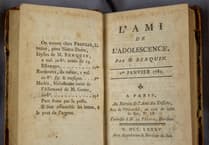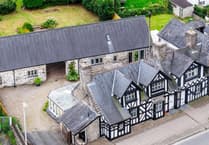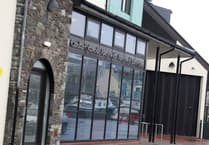The Roderic Bowen Library and Archives at Lampeter, housing the University of Wales Trinity Saint David’s collections, will take part in Cadw’s Open Doors Festival next weekend.
The festival, held between 12pm and 4pm on Saturday, 30 September, is part of an annual festival organised by Cadw.
It showcases more than 200 Welsh historical sites, landmarks and hidden gems to the wider public, where heritage organisations, private owners, local authorities and others are encouraged to open their doors.
Lampeter’s special collections hold a nationally important collection of 35,000 historic volumes, including eight medieval manuscripts and 69 books printed before 1500.
During the event, a selection of the most interesting items in the library will be on display.
These will include a 1279 manuscript of the Latin Bible previously belonging to Bishop Thomas Burgess; two 15th century books of hours; a copy of Abraham Ortelius’ atlas, including the first printed map of Wales; Conrad Gessner’s Historia animalium, a fascinating 16th century natural history encyclopaedia; a selection of 15th to 18th century botanical books; a variety of travel books associated with 18th century explorers, including Captain Cook; a selection of architects’ volumes connected with the Grand Tour of Europe.
Siân Collins, head of special collections and archives at UWTSD said: “This is a wonderful opportunity for people to see what puts the ‘special’ in special collections.
“We are so lucky in UWTSD to have some amazing treasures and we look forward to sharing them with the wider community. We hope they will inspire excitement and curiosity – and the desire to find out more!”
Alison Harding, UWTSD’s executive head of library and learning resources added: “We are so pleased that our special collections and archives are able to contribute to the Cadw Open Doors programme for 2023.
“We are very mindful of our key role in the cultural and heritage landscape of Wales, so it is hugely important to ensure these collections are accessible to communities beyond that of the university.
“I’d also like to take this opportunity to thank colleagues from the special collections and archives team for making our participation in this significant programme possible.”



